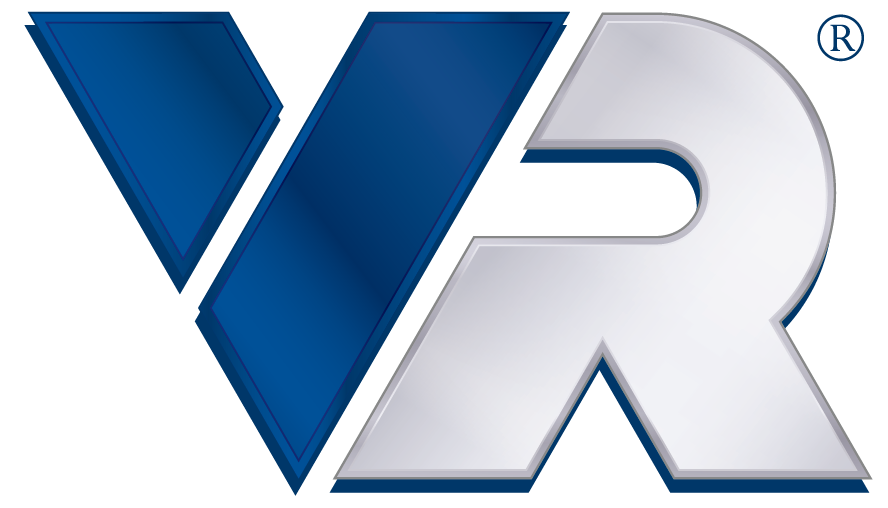The VR Buying Process
The experts in any profession are masters of their trade. They are copied by competitors, and their operational procedures become the norm for their peers.
The “VR 20 Steps for Buying a Business” is the methodology behind helping today’s entrepreneur acquire their dream, and has been since 1979.
VR’s goal is to educate our client so that the business transaction is a smooth transition for the first time owner or the professional buyer. Now in its fifth decade of offering Valued Representation, VR Business Brokers offers a transaction road map that is not only detailed, but proven.

82% of start-ups fail in the first 3 years. Most successful businesses continue to succeed.
Skip the start-up. By purchasing an existing business, you can avoid much of the start-up costs and get right to work on improving and growing the business. You have the benefit of acquiring trained and knowledgeable employees and avoid the costs of finding and training them.
VR’s International network offers more than 40 years of experience to buyers and sellers of both small and mid-sized businesses. Our commitment to bringing committed sellers with qualified buyers is the foundation of the VR organization.
You’ve Found a Business to Buy, Now What? How do I get the Money?
Bankers are more willing to aid in investing in a sound business, instead of pursuing a business that has no foundation. With that said, business buyers will need to have some funds to offer as a down payment in order to satisfy loan requirements.
VR utilizes various sources for financing as well as possible seller financing. Aside from cash, creative financing can make your purchase of a business even more promising and become a reality. To name a few, SBA loans, bank loans, lines of credit, 2nd mortgage, 401Ks, IRAs, SEPS or pensions are all possible tools used in making the purchase.
VR’s 20 Steps for Buying a Business: How to Buy a Business
It starts with your commitment to purchase a business at a price and terms consistent with the marketplace. Buying a business is rewarding in many ways, but it is a major undertaking and requires your complete commitment to be successful.
You will be required to sign a NDA thereby promising to maintain confidentiality for all of the information provided to you on the business we review, discuss or present.
By completing the VR Buyer Profile, you are providing us with information about yourself. It includes a resume, financial statements, and available capital to invest. Sharing information about yourself makes it more likely we can find a business that matches your needs. It also goes without saying that the more information we can provide the sell and financing sources, the stronger your negotiating position.
Together with your VR intermediary you will discuss and review various types of industries and specific businesses. The narrowing of options that appeal to you, or that you may be qualified to acquire, saves valuable time for all parties. You will have the ability to review confidential business profiles that, in part, summarize the business, its financial information, facility and lease information.
We will present to you the businesses that have matched your buying criteria, and discuss the opportunity surrounding each. These initial presentations can vary from digital presentations in our boardrooms, to actual on-site visits as the information process moves forward. It is critical to remember when visiting a business, that the sale is highly confidential.
A meeting between you, the seller and your VR intermediary may take place if you are interested in obtaining more information regarding the business, and seriously consider it a candidate for purchase. This gives you the chance to ask questions you may have about how the business operates and allow the seller to feel comfortable in who is acquiring their business (and possibly holding a note for).
With the assistance of your VR broker, the next step is to prepare an Offer to Purchase on the VR Purchase Agreement (a Letter of Intent may be used on larger transactions). An Offer to Purchase will include an earnest money check along with contingencies that are to be satisfied during Due Diligence.
Your VR intermediary presents your offer to the seller and takes the time necessary to explain the terms and conditions of your offer to the seller and their decision makers.
With your approval, your VR intermediary provides the seller you background, financial information, experience and basis for arriving at the offering price, along with terms and conditions. Substantial background information can result in a favorable consideration of your offer.
The seller will either accept the Offer to Purchase as it is written, or will present a Counter Offer. Once the buyer and seller agree to the all the terms and conditions of the sale, sign all counter offers, and amendments (if any), you have mutual acceptance and it then becomes a Contingent Purchase Agreement.
At this stage the examination of financial records and other operational information, inventory, management and lease reviews take place. The due diligence and inspection stages are critical for the buyer to confirm that what the seller has claimed to be is truthful and accurate, and meets the conditions of your offer.
You remove all contingencies as each is resolved or met in the Agreement. Once completed, it is a binding agreement.
Your VR intermediary will send the Purchase Agreement and other documents to the escrow attorney or closing attorney who then drafts the closing documents and deposits the earnest money deposit into their trust account. Escrow is “open” as soon as both buyer and seller have signed the documents. Depending on the geographic location in which you live or are acquiring the business, the process may be handled by parties other than an escrow company. Your VR broker can educate you what to expect in your local market.
In most geographic areas the attorney for the buyer, or the escrow company, performs a lien search on the business to identify any secured creditors. Liens to secured creditors will be removed prior to closing. During the lien search there will also be an investigation with tax agencies for tax clearances.
During the escrow period the buyer, with the aid of their advisors, will be obtaining liability insurance for the business, workman’s compensation insurance (if required), all necessary business licenses and permits, EIN/TIN (Employer Identification Number/Tax Identification Number), and form the appropriate business entity.
The seller’s landlord may require the assignment of the existing lease or an entirely new lease. You will, with the seller and landlord, obtain the necessary documentation for closing. This is another critical step and one of your remaining contingencies. It is important to provide the landlord with a complete personal financial statement, resume, and lease application promptly to ensure your new lease or assignment is complete in time for the closing.
Your VR intermediary will work with you, the seller, and an escrow officer/closing attorney to have an agreed upon notes and equipment leases assigned to you and your new corporate entity.
Arrangements are made for you and the seller to count and price the inventory if it applies to the business you are acquiring. If it is a large or complex inventory it may be necessary to outsource this function to an inventory service.
Signing of the final closing documents may be done at escrow, in person, or in many cases, via courier, email, or fax. These arrangements will be agreed upon by all parties prior to closing.
Agreed upon training with the seller commences after the closing and during the change of possession. The terms and length of seller involvement training is agreed to as part of the executed Purchase Agreement.
Are you ready to learn more?
VR Business Brokers offers a transaction road map that is not only detailed, but proven


